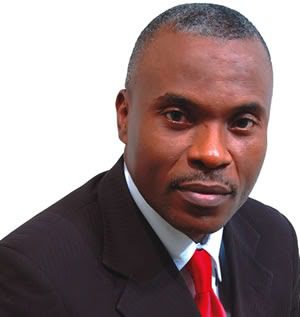Forgotten Dairies
Between Reality And Assumption -By Azuka Onwuka

When some members of the Ojukwu family told Mrs Bianca Ojukwu that she should go to Enugu to contest for the Senate seat, we condemned that as being completely against Nnewi tradition, Igbo culture and the Nigerian Constitution. But as usual, experts in stereotyping emerged to turn it into an Igbo issue. Patriarchy was mouthed and the Igbos were bashed as usual.
But there is something with statistics. You can’t argue with it.
After the the 2019 National Assembly election, Anambra State produced two female senators (Stella Oduah and Uche Ekwuife) out of the possible three for each state. Please is there any other zone in Nigeria where that happened now or in the past, to help us keep the records straight in this discussion and beyond? This piece is not for the purposes of chest-thumping but for the attention of champions of stereotyping and hasty generalisations.

Note that these women contested against strong and prominent male politicians. Yet the masses voted for the women.
There is a reason for this. But let us look at another piece of statistics.
In the whole 6 zones of Nigeria, it is only in the Southeast that more girls go to school than boys. Please see the statistics from WAEC and JAMB. The reason is simple: An Igbo man with moderate resources and 2 sons and 3 daughters would rather send the girls to school and send the boys to learn a trade or become apprentices. Similarly, an Igbo man with primary or secondary school education would train his wife to obtain a university degree and postgraduate degrees. The reasoning is this: The Igbo man believes that a man can survive and succeed without a university degree, but a woman will be disadvantaged without a degree; he believes that the man can do manual and menial jobs to succeed, but a woman should have a degree to help her do mental and white-collar jobs, because menial and manual jobs should not be for women. (For example, traditionally an Igbo woman should not hew wood or pound food in a mortar – such hard work is reserved for men).
Similarly, even though there are some cultural practices that reserve certain roles for men and women, the Igbo society encourages women to attain their best in life. Fathers, brothers, husbands, etc, support women to rise to achieve their dreams.
A look at Nigeria will show this. It is not by coincidence that Igbos have produced a lot of top female political figures, intellectuals/acedemics, business leaders, and prominent individuals like Margaret Ekpo of the NCNC, Flora Nwapa, Buchi Emecheta, Dora Akunyili, Ngozi Okonjo-Iweala, Virgy Etiaba (Nigeria’s first female governor), Ndi Okereke-Onyiuke, Oby Ezekwesili, Arunma Otteh, Stella Okoli, Onyeka Onwenu, Chimamanda Adichie, Mary Onyali, Chioma Ajunwa, Genevieve Nnaji, etc.
The Igbo ethnic group is not better than any other ethnic group. No ethnic group is better than the other. But there are peculiar things many people don’t understand about the Igbos which lead them to make hasty and unfounded assumptions and generalisations. Interestingly, some Igbos have even ignorantly accepted these generalisations as true and help in spreading them, so as to be seen as “honest, detribalised Nigerians.”

















